Parenting

The future of JUNO magazine
It is with great sadness that we announce the end of publication of printed copies of JUNO magazine. This means that Issue 100, the Early Spring issue, will be the last print issue that is produced by the current team. As was shared in Issue 100, as Editor, I was looking to move on from my role during 2026. Plans were in place to pass on the magazine and to ensure its future in an evolving way. Unfortunately, those plans have fallen through, and it is not possible for us to produce the 2026 issues in the way we had hoped. After 16 years, this is not the way we wanted to end our JUNO journey, but matters have taken an unexpected turn, as so often happens in life, and all we can do is respond to that in the best, most honest and constructive way that we can. We...
The future of JUNO magazine
It is with great sadness that we announce the end of publication of printed copies of JUNO magazine. This means that Issue 100, the Early Spring issue, will be the...

Bringing up children in a gendered world
Over the past several years I have been watching my daughter Rebe grow and change, and one of the most marked things about her growing up has been her relationship with her gender. Children start to develop gender awareness at around the age of three, when they learn that there is a difference between boys and girls, and between men and women. They learn how to tell the difference between the two, and as they grow older they tend to identify with one or the other. This then becomes their gender identity. When Rebe first became aware of herself, I noticed that she didn’t have a strong idea of herself as a girl. She chose to play with cars and trains, and the children she gravitated towards were boys. She didn’t like playing with dolls and never wanted to be a princess. She did choose to wear skirts and dresses,...
Bringing up children in a gendered world
Over the past several years I have been watching my daughter Rebe grow and change, and one of the most marked things about her growing up has been her relationship...
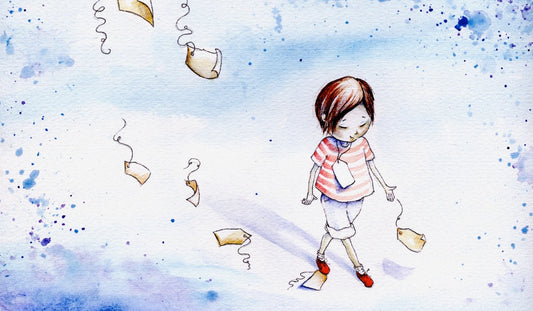
Neurodiversity: the New Normal
Diversity is an accepted and expected part of life in 21st-century Britain. We are all aware, for example, of gender diversity or cultural diversity. The concept of neurodiversity, however, is not yet viewed in the same way, writes Vicky H. Bourne... As a young adult receiving a diagnosis of Asperger syndrome I was initially delighted. For the first time in my life I had a reason and explanation for my differences. All of my previous difficulties, misunderstandings and mistakes now made sense. I liken it to reading a detective novel where you discover ‘whodunnit’ on the final page. Rereading the book, you find the clues were already there in plain sight; you were simply looking at the story from the wrong angle. Neurodiversity There is a range, or diversity, of ways in which human brains think, learn, process information and relate simply social constructs, reflecting nothing more than what society...
Neurodiversity: the New Normal
Diversity is an accepted and expected part of life in 21st-century Britain. We are all aware, for example, of gender diversity or cultural diversity. The concept of neurodiversity, however, is...
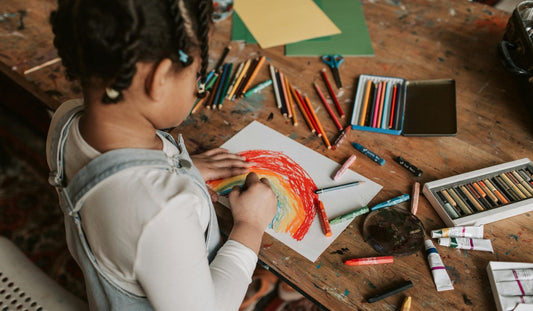
How to use energising activities to support chi...
Many of you reading this probably know someone with attention deficit hyperactivity disorder. You may even have it yourself. Over the years, it’s become common to caricature those with ADHD as disruptive schoolchildren causing havoc in the classroom. While this is certainly the case with some children with ADHD, most of the children I work with have the opposite problem. Their mind isn’t actually in the classroom at all, but a million miles away… As someone who grew up with ADHD, I know what it’s like spending day after day in the classroom with your head in the clouds. I was fortunate (some might say unfortunate) to have parents who were overly laissez-faire with my education. Although had they been pushy parents, I assure you it wouldn’t have made the slightest difference. At school, there was this inner feeling of ‘I can’t be bothered’, which prevailed when I tried to concentrate....
How to use energising activities to support children with ADHD
Many of you reading this probably know someone with attention deficit hyperactivity disorder. You may even have it yourself. Over the years, it’s become common to caricature those with ADHD as...
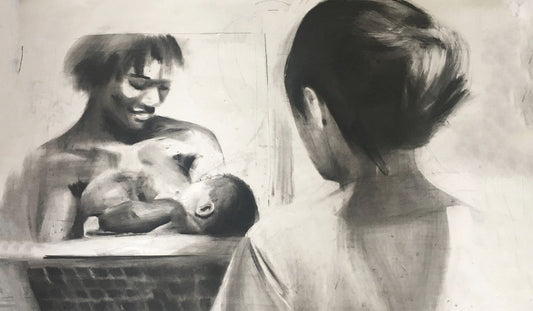
Special Time: being with a newborn baby
Modern life is very fast. We’ve got used to it, but a newborn hasn’t. He has a startle reaction if his mother lifts him up too quickly.* So the early months after the birth can be an opportunity for the mother to lift him slowly, and to enjoy an intimate ‘special time’ with her newborn. Unfortunately, many women today feel they are plunged into motherhood, with minimal preparation. How can a mother relax and enjoy being with her newborn when she has so much to learn about the practicalities of looking after him? “There should be midwives after the birth. That’s when you need them.” [6 months] First mother: “There’s not nearly enough follow-up after the birth. Everyone just leaves you to get on with it.” [23 months; 4 months] Second mother: “They say: ‘Well, you’ve just had a baby,’ meaning: ‘What did you expect?’” [7 months] Mothers today are...
Special Time: being with a newborn baby
Modern life is very fast. We’ve got used to it, but a newborn hasn’t. He has a startle reaction if his mother lifts him up too quickly.* So the early...
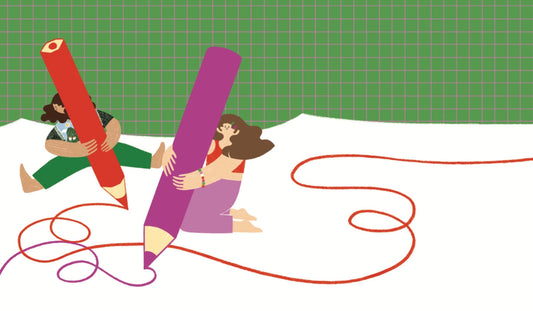
Aware Parenting: Attachment Play
Rebecca Sheikh describes ways we can connect with our children through play, in part two of our Aware Parenting series In his book Playful Parenting, Lawrence Cohen says, “Play is where children show us their inner feelings and experiences that they can’t or won’t talk about. We need to hear what they have to say, and they need to share it. That’s why we have to join children where they live, on their terms.”¹ Following an explosive morning with my 11-year-old, I was recently flooded with feelings of guilt, which we parents often feel when we want something different for our children, but get sidelined by our own intense feelings and unmet needs. We got through the moment, and it ended with a heartfelt plea from my daughter: “Mum, I just need you to play with me!” Wonderfully, we do learn, and a few days later when she spoke to...
Aware Parenting: Attachment Play
Rebecca Sheikh describes ways we can connect with our children through play, in part two of our Aware Parenting series In his book Playful Parenting, Lawrence Cohen says, “Play is...
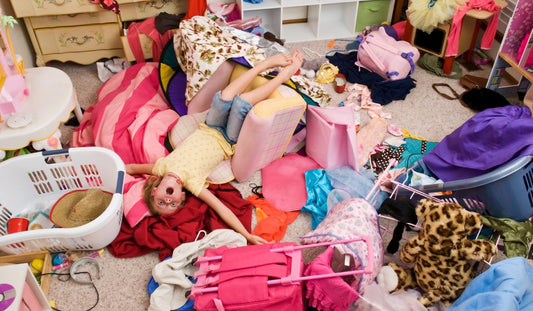
One mum's perspective on toy overload
We have too many toys in our house. This might sound a bit melodramatic, but it isn’t an easy admission to make as a ‘green’ mother of three. We started out with such good intentions. We were determined our children would have a childhood full of old-fashioned pleasures; of homemade toys and imaginary worlds, of dens made from bed sheets, and tea parties under the table. Their toys would come from the world around us, gathered by the children themselves. Their dressing-up box would be filled with old curtains, squares of silk and foil crowns, and we would build castles out of cardboard boxes. We would buy second-hand, share with friends, make do and mend. We would not plunder the Earth’s resources buying cheap toxic toys, shipped halfway across the world, produced by people paid a pittance. We would not buy dolls that promoted unrealistic body images and taught my...
One mum's perspective on toy overload
We have too many toys in our house. This might sound a bit melodramatic, but it isn’t an easy admission to make as a ‘green’ mother of three. We started...
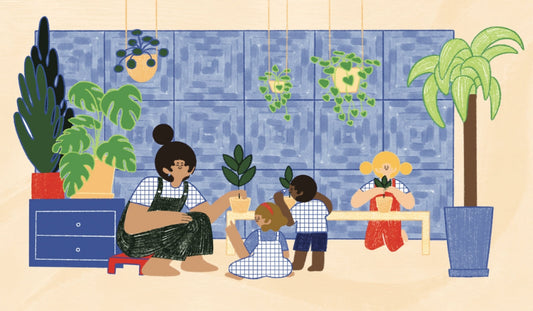
Aware Parenting: An Introduction
In the first of a four-part series on Aware Parenting, Rebecca Sheikh introduces the attachment-based, trauma-informed approach I discovered Aware Parenting when my first child was 9 months old, at a time when I felt confused, exhausted and completely disconnected from my own intuition and inner knowing. Despite having a successful career as a teacher prior to my daughter being born, I carried a deep well of grief, uncertainty, and unresolved stress and trauma. Shaun Tan’s book The Lost Thing is symbolic of how life felt for me up to that point. It’s no surprise that when my first child arrived, I found the experience of caring for a newborn to be emotionally overwhelming and lonely. I barely slept for the first 6 months as my daughter seemed always to be crying. I would try everything to stop the crying: bouncing her, rocking her, walking, carrying, shushing, driving her around...
Aware Parenting: An Introduction
In the first of a four-part series on Aware Parenting, Rebecca Sheikh introduces the attachment-based, trauma-informed approach I discovered Aware Parenting when my first child was 9 months old, at...
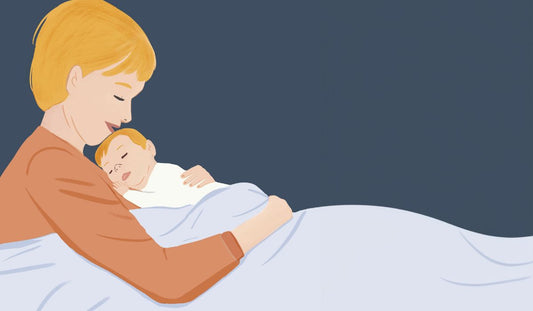
How leaning into instinct has improved our pare...
In my first, delirious months of motherhood, I hungrily searched for tips, tricks and ‘hacks’ that might make my son sleep for longer stretches. Night feeds were spent scrolling through forums; daytime cluster feeds were spent thumbing through books about baby sleep. Seemingly, other babies slept. Other babies could be put down. Why couldn’t my baby? While I was searching desperately for external guidance, my instincts were screaming at me. On the rare occasions that my son slept for an hour or so in his crib, I was too anxious to sleep. I felt strongly that he should be next to me at all times, but I’d read the warnings about bed-sharing. In my anxious, sleep-deprived state, I took these warnings at face value and persisted with trying to put him down in the crib. Nights were spent sat up in the nursing chair, as I tried to defy basic...
How leaning into instinct has improved our parenting lives
In my first, delirious months of motherhood, I hungrily searched for tips, tricks and ‘hacks’ that might make my son sleep for longer stretches. Night feeds were spent scrolling through...

How NLP techniques can support in motherhood
Motherhood can be a rollercoaster journey, full of glimmers, magical memories, tough days, long nights and moments of doubt. Being a mum is twofold: supporting your child to grow and be healthy and happy, and also nourishing yourself to grow too. In becoming a mother, you can learn so much about yourself, though this can be met with uncertainty, limiting beliefs and negative internal chatter, especially of ‘not being a good enough mum’ or feeling guilty for needing (and wanting) your own space. Neuro-linguistic programming (NLP) can support mums to move beyond this. It is a tool that can help to build self-awareness. As an approach, NLP seeks to understand and improve human communication and behaviour. It was developed in the 1970s by Richard Bandler and John Grinder, who believed that by modelling the language and behaviour of successful people, they could create techniques to help others achieve similar success....
How NLP techniques can support in motherhood
Motherhood can be a rollercoaster journey, full of glimmers, magical memories, tough days, long nights and moments of doubt. Being a mum is twofold: supporting your child to grow and...






